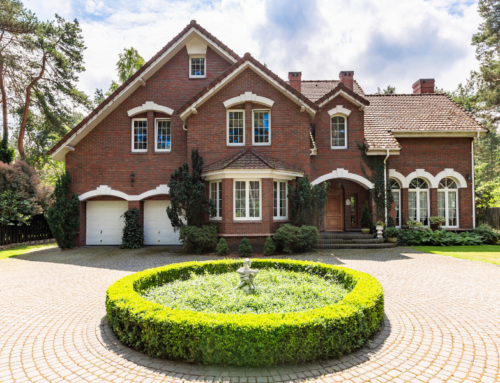Average home price expected to rise by 3.7% next year
• Increased consumer confidence could be a key factor affecting the housing market in 2020
• 51% of Canadians are considering a home purchase in the next five years, up from 36% at the same time last year
• Only two in 10 Canadians say that the mortgage stress test negatively affected their ability to purchase a home in 2019
 RE/MAX is calling for a leveling out of the highs and lows that characterized the Canadian housing market in 2019, particularly in Vancouver and Toronto, as we move into 2020. Healthy price increases are expected next year, with the RE/MAX 2020 Housing Market Outlook Report estimating a 3.7 per-cent increase in the average residential sale price.
RE/MAX is calling for a leveling out of the highs and lows that characterized the Canadian housing market in 2019, particularly in Vancouver and Toronto, as we move into 2020. Healthy price increases are expected next year, with the RE/MAX 2020 Housing Market Outlook Report estimating a 3.7 per-cent increase in the average residential sale price.
Most individual markets surveyed across Canada experienced moderate price increases year-over-year from 2018 to 2019. However, some regions in Ontario continue to experience higher-than-normal gains, including London (+10.7 per cent), Windsor (+11 per cent), Ottawa (+11.7 per cent) and Niagara (+12.9 per cent).
As more Canadians have adjusted to the mortgage stress test and older Millennials move into their peak earning years, it is anticipated that they will drive the market in 2020, particularly single Millennials and young couples. A recent Leger survey conducted by RE/MAX found that more than half (51 per cent) of Canadians are considering buying a property in the next five years, especially those under the age of 45.
Reduced foreign buyer activity has opened up more opportunity for local buyers in Greater Vancouver’s condo market. While average residential sale prices for all properties increased by two per cent, from $1,030,829 in 2017 to $1,049,362 in 2018, the number of sales dropped by 30 per cent. The low absorption rate is expected to bring down average residential sale prices in 2019 by three per cent
Similarly, the number of sales year-over-year has dropped by 33 per cent in Kelowna. Rising interest rates, government policy changes and the mortgage stress test were all factors that contributed to the decline, which is expected to continue into 2019. Average residential sale prices increased by six per cent year-over-year from $674,930 in 2017 to $718,915 in 2018, with prices expected to decrease by three per cent in 2019.
“The drop in sales in key markets across British Columbia can be partially attributed to Canadians’ increasing difficulty in getting an affordable mortgage in the region,” says Elton Ash, Regional Executive Vice President, RE/MAX of Western Canada. “The situation created by the introduction of the mortgage stress test this year, as well as continually increasing interest rates, means more Canadians will be priced out of the market.
Regional housing market insights:
Victoria, BC
Vancouver East, BC
Vancouver West, BC
Kelowna, BC
Fraser Valley, BC
THE PRAIRIES
Alberta continues to experience slowing economic conditions, which have contributed to a decrease in average residential sale prices in Calgary, from $478,088 in 2018 to $460,532 in 2019. Condos are the easiest way for first time homebuyers to get into the market, with starter units going for as low as $150,000. While the city’s unemployment rate continues to remain high compared to the rest of Canada, the population is increasing, with more people moving to the city from other parts of the province.
On the other hand, Winnipeg has shown a small increase in average residential sale price, both for freehold and condominium properties, by 1.5 and 0.8 per cent, respectively. The number of properties sold also increased by five per cent, from 8,139 in 2018 to 8,539 in 2019. Immigration to the city, in combination with reasonable prices and ample supply of inventory, is expected to drive sales going into 2020. Regina also saw the number of properties sold increase by more than five per cent year-over-year, despite being one of the few markets where the effects of the mortgage stress test are still being felt.
Regional housing market insights:
Edmonton, AB
Calgary, AB
Saskatoon, Sask.
Regina, Sask.
Winnipeg, MB
Toronto is set to experience a strong housing market in 2020. Lower unemployment rates, economic growth and improved overall affordability in the Greater Toronto Area are expected to drive the market forward. The estimated average sale price increase for 2020 is six per cent, two points higher than the growth experienced between 2018 ($736,256) and 2019 ($766,236). The city saw 76,413 properties sold in 2019, up 12 per cent from 2018 (68,064). While Toronto is experiencing its “busiest” construction season ever, housing supply still falls short of the demands of the city’s rapidly growing population.
Cities such as Ottawa and Windsor are seller’s markets, showing substantial increases in average residential sale price at 11.7 and 11 per cent, respectively. This strong growth is expected to continue into 2020, with Ottawa’s new LRT system impacting surrounding development and Windsor’s continued affordability attracting young professionals to the area. Buyers are also not burdened by the mortgage stress test, as they were in 2018.
The Niagara region is also showing strong growth, with average residential sale price increasing almost 13 per cent, from $378,517 in 2018 to $427,487.50 in 2019. Value-conscious consumers from the Greater Toronto Area are buying in droves, with many choosing to live in the region while commuting to Toronto.
“Southern Ontario is witnessing some incredibly strong price appreciation, with many regions still seeing double-digit gains,” says Christopher Alexander, Executive Vice President and Regional Director, RE/MAX of Ontario-Atlantic Canada. “Thanks to the region’s resilient economy, staggering population growth and relentless development, the 2020 market looks very optimistic.”
Regional housing market insights:
Windsor, Ont.
London, Ont.
Niagara Region, Ont.
Kitchener-Waterloo, Ont.
Hamilton-Burlington, Ont.
Oakville, Ont.
Mississauga, Ont.
Toronto, Ont.
Brampton, Ont.
Barrie, Ont.
Sudbury, Ont.
North Bay, Ont.
Thunder Bay, Ont.
Durham Region, Ont.
Kingston, Ont.
Ottawa, Ont.
Cornwall, Ont.
In Atlantic Canada, Halifax and Saint John have experienced solid price appreciation of six and five per cent, respectively. Affordability continues to attract many buyers in the region, most of whom are buying single family homes. At the same time, the region’s multi family and condo market is being driven by retirees. Conversely, the real estate market in St. John’s is expected to recover in 2020, with increased consumer confidence expected to bring about stabilization. However, the city’s aging population and high rate of outbound migration is expected to have an impact on housing market activity at some point.
Regional housing market insights:
Saint John, NB
Halifax, NS
Charlottetown, PEI
St. John’s, Newfoundland
Key Findings from the 2020 RE/MAX Housing Market Outlook Omnibus Survey
Fifty-one per cent of Canadians are considering buying a property in the next five years. This is up from 36 per cent at the same time last year. The increase is attributed to consumers’ adjustment to the mortgage stress test and increased purchasing power. Only two in 10 survey respondents said the mortgage stress test has negatively impacted their ability to purchase a home.
Liveability continues to be important to Canadians, with more than half wanting to live closer to green spaces and shopping/dining locations. Specific figures:
• 62% of Canadians would like to live near shopping/dining locations
• 59% would like to live closer to green spaces
• 30% would like to live closer to work
• 36% would like to live closer to public transit
CANADIAN HOME PRICES EXPECTED TO INCREASE BY 1.7 PER CENT IN 2019
Modest price increases are expected in 2019, as the RE/MAX 2019 Housing Market Outlook estimates the average sales price to increase by 1.7 per cent. Housing markets across the country have stabilized in 2018, after the unprecedented increases in average sales price that many markets experienced in 2017. However, there continue to be some outliers in 2018 average sales price gains, particularly in areas outside of the main city centres, such as Chilliwack (+ 13%), Windsor (+13%), London (+17%) and Charlottetown (+11%).
It is anticipated that the market will continue to stabilize, as Canadians will start to feel the pinch of higher interest rates as they move forward with their home-buying plans in 2019. A recent survey revealed almost one-third (31 per cent) of Canadians said higher interest rates have not affected their ability to get an affordable mortgage thus far. However, this is expected to change in 2019. A separate survey of RE/MAX brokers and agents found 83 per cent predict rising interest rates will make it more difficult for Canadians to purchase a home next year.
British Columbia
Reduced foreign buyer activity has opened up more opportunity for local buyers in Greater Vancouver’s condo market. While average residential sale prices for all properties increased by two per cent, from $1,030,829 in 2017 to $1,049,362 in 2018, the number of sales dropped by 30 per cent. The low absorption rate is expected to bring down average residential sale prices in 2019 by three per cent
Similarly, the number of sales year-over-year has dropped by 33 per cent in Kelowna. Rising interest rates, government policy changes and the mortgage stress test were all factors that contributed to the decline, which is expected to continue into 2019. Average residential sale prices increased by six per cent year-over-year from $674,930 in 2017 to $718,915 in 2018, with prices expected to decrease by three per cent in 2019.
“The drop in sales in key markets across British Columbia can be partially attributed to Canadians’ increasing difficulty in getting an affordable mortgage in the region,” says Elton Ash, Regional Executive Vice President, RE/MAX of Western Canada. “The situation created by the introduction of the mortgage stress test this year, as well as continually increasing interest rates, means more Canadians will be priced out of the market.
Prairies
Slowing economic conditions in Alberta have contributed to a decrease in average residential sale prices in Edmonton, from $393,003 in 2017 to $379,539 in 2018. While economic recovery is expected to take some time, the luxury market is thriving, with prospective investors in cannabis and migrant speculators driving this new segment. Meanwhile in Calgary, the market is expected to stay relatively flat in 2019 due to its reliance on the oil and gas industry, and further real estate hindrances like the mortgage stress test.
Conversely, Winnipeg has shown a moderate increase of average residential sale price, rising from $315,720 in 2017 to $323,001 in 2018. Looking ahead to 2019, prices are expected to continue on this upward trajectory, with an expected increase of four per cent. Although the senior population is downsizing, immigration to Winnipeg from urban centres such as Toronto and Vancouver (15,000 people move to Manitoba every year) is expected to drive sales going into 2019. In Saskatchewan, both Regina and Saskatoon have experienced a buyers’ market which is set to prevail into 2019.
Ontario
In Toronto, rising interest rates and the mortgage stress test were the two major factors affecting market activity this past year, with average sale prices dropping by four per cent from $822,572 in 2017 to $789,181 in 2018, and unit sales down by 16 per cent. Lack of affordability in the single-detached segment will make it difficult for buyers wanting to enter the freehold market. The resale condo market, on the other hand, now represents almost 37 per cent of total residential sales, with its relative affordability fueling the rise of vertical growth. Average residential sale price is expected to increase by two per cent in 2019.
Communities such as Ottawa and London are sellers’ markets, showing increased growth in average residential sale price. This trend is expected to continue into 2019, however rising interest rates and the stress test continue to make it difficult for prospective buyers in other Ontario communities, including Barrie, Oakville and Durham regions.
Due to the stress test and increasing interest rates, we are seeing more buyers in traditionally affordable regions in Ontario unable to enter the market,” says Christopher Alexander, Executive Vice President and Regional Director, RE/MAX of Ontario-Atlantic Canada. “This is particularly true for first-time buyers and single Millennials, as evident in cities like Brampton, Kingston and Durham.
Atlantic Canada
In Atlantic Canada, Halifax, Saint John and St. John’s have all experienced stable price appreciation in 2018. Detached homes continue to be the most in-demand property type, while the region’s aging population and retirees are driving the condominium market. The economic slowdown and drop in oil prices in St. John’s have resulted in a buyer’s market, but activity is expected to pick back up in the latter half of 2019.
The RE/MAX 2019 average residential sale price expectation for Canada is an increase of 1.7 per cent.
Key Findings from the RE/MAX 2019 Canadian Housing Market Outlook Omnibus Survey
Thirty-six per cent of Canadians are considering buying a property in the next five years. This is down from 48 per cent at the same time last year. The decrease is attributed to actual and perceived impacts of the mortgage stress test and rising interest rates on housing affordability. Thirty-one per cent of survey respondents said higher interest rates have not affected their ability to get an affordable mortgage so far, but the risk of future rate hikes, as indicated by RE/MAX brokers and agents, might affect these buyers in 2019.
Liveability continues to be important to Canadians, with more than half wanting to live closer to green spaces, work and better access to public amenities. Despite the apparent popularity of recreational cannabis since legalization in October 2018, 65 per cent of respondents said they do not want to live near a retail cannabis store. Specific figures:
- 52 per cent of Canadians would like to live closer to green spaces
- 47 per cent would like better access to public amenities
- 35 per cent would like to live closer to work
- 37 per cent would like to live closer to public transit
- 35 per cent would like to move to a different neighbourhood
- 59 per cent strongly disagree with living near a retail cannabis store












